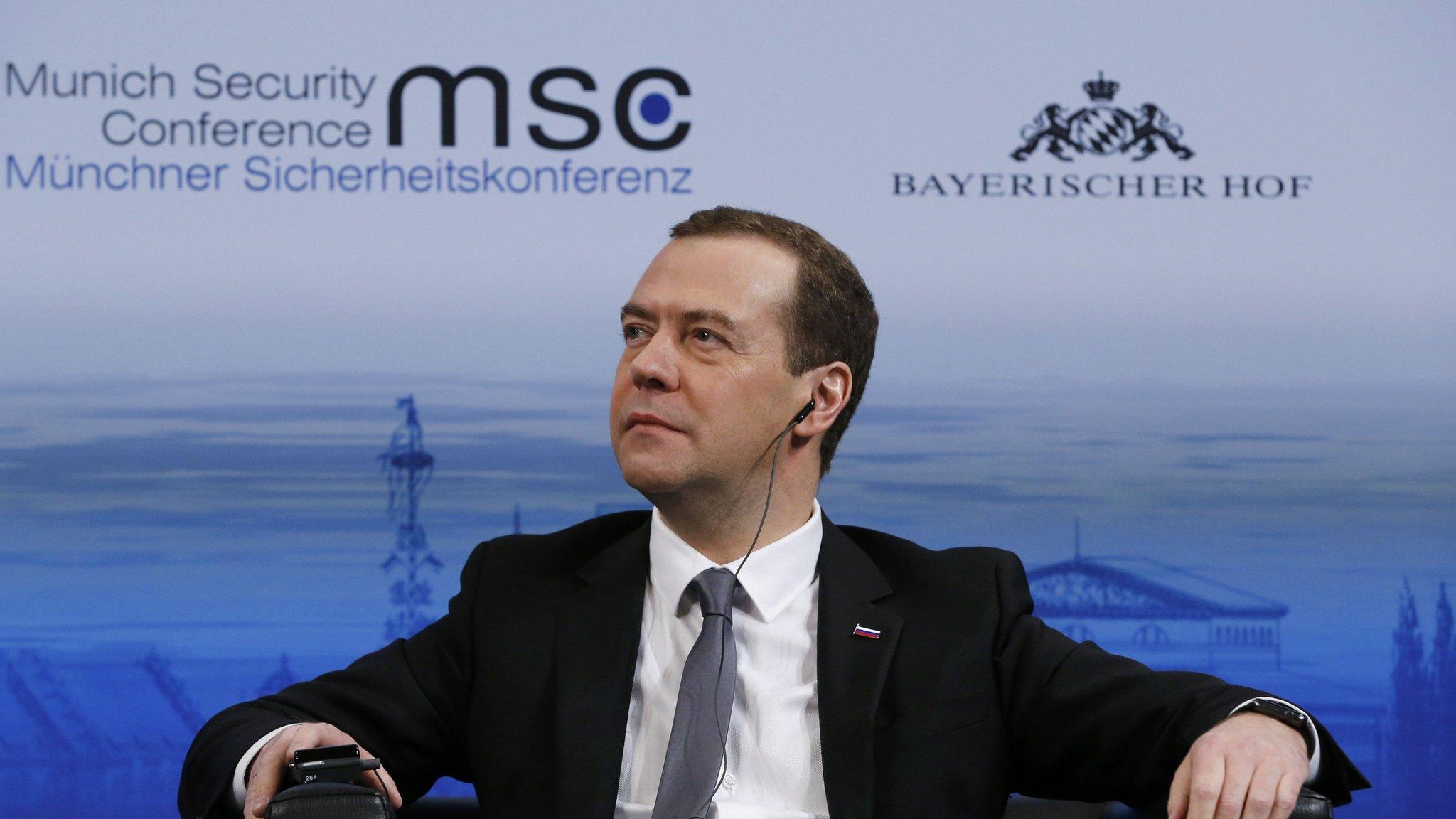Oh, what a lovely (cold) war!
- Published
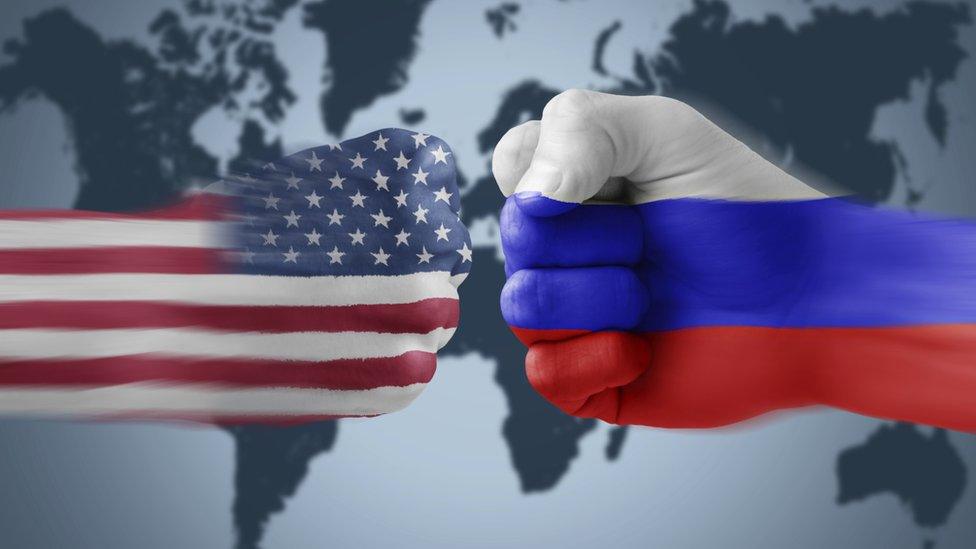
Speaking at the annual Munich Security Conference at the weekend, Russian Prime Minister Dmitry Medvedev claimed that Europe was "rapidly rolling into a period of a new cold war".
"Russia," he said, "has been presented as well-nigh the biggest threat to Nato, or to Europe, America and other countries.
"I am sometimes confused," he went on. "Is this 2016 or 1962?"
Just a few days earlier in Washington, the director of the US National Intelligence Agency, James Clapper, was giving evidence on "worldwide threats" to the influential Senate Armed Services Committee.
"I think the Russians fundamentally are paranoid about Nato," he said. "We could be into another Cold War-like spiral here."
So from both the Russians and the Americans come claims of a renewed cold war. Tensions between Russia and the West are certainly bad. The Russian annexation of Crimea initiated the chill which turned frosty over Ukraine and is now getting steadily worse due to very different perceptions as to what should be done about the human catastrophe in Syria.
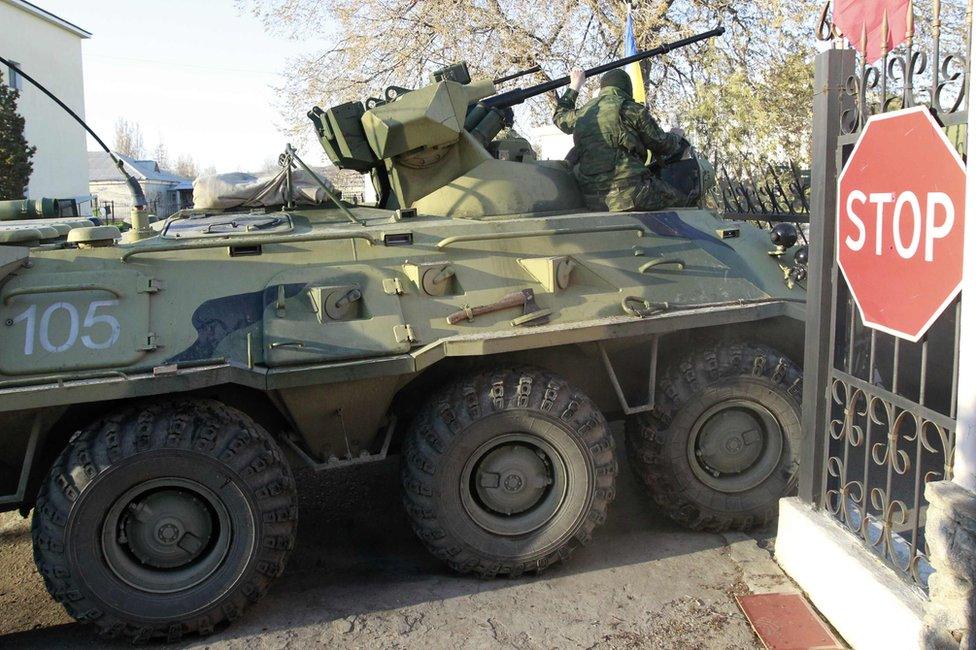
Relations between Moscow and the West took a turn for the worse after Russia's annexation of Crimea
But in truth things were not terribly good even before the Crimea crisis. Russia opposed Nato expansion and US plans for missile defence. It argued for an entirely new European security order that went beyond institutions like Nato that were simply products of the Cold War.

The Cold War
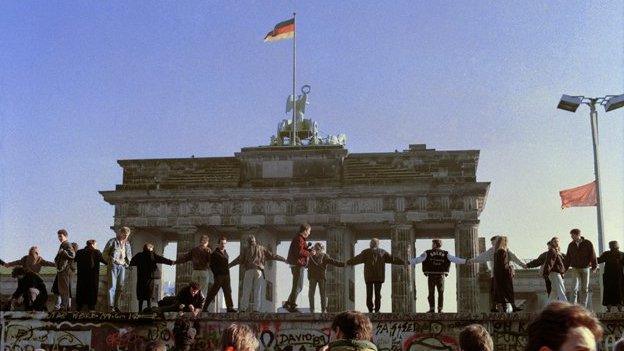
The fall of the Berlin Wall symbolised the end of the Cold War
A period of ideological confrontation between the former Soviet Union and Western countries
Began after World War Two and ended with the collapse of the Soviet-led communist camp in the early 1990s, which came soon after the fall of the Berlin Wall in 1989
The 45 years of tension were marked by espionage and proxy wars involving client states and a variety of "liberation" movements
All of these were undertaken with the knowledge or fear of the nuclear catastrophe that actual war would bring
The Nato alliance was established in 1949 to protect Western countries

Russia rearming
Of course for a time in the wake of the collapse of communism there was effectively no Russian foreign policy and not much of a military to back it up.
I remember vividly visiting the Black Sea fleet's base in Sevastopol in 1991. In a showy display of sea power, Soviet warships bristling with weapons were tied up alongside the dock.
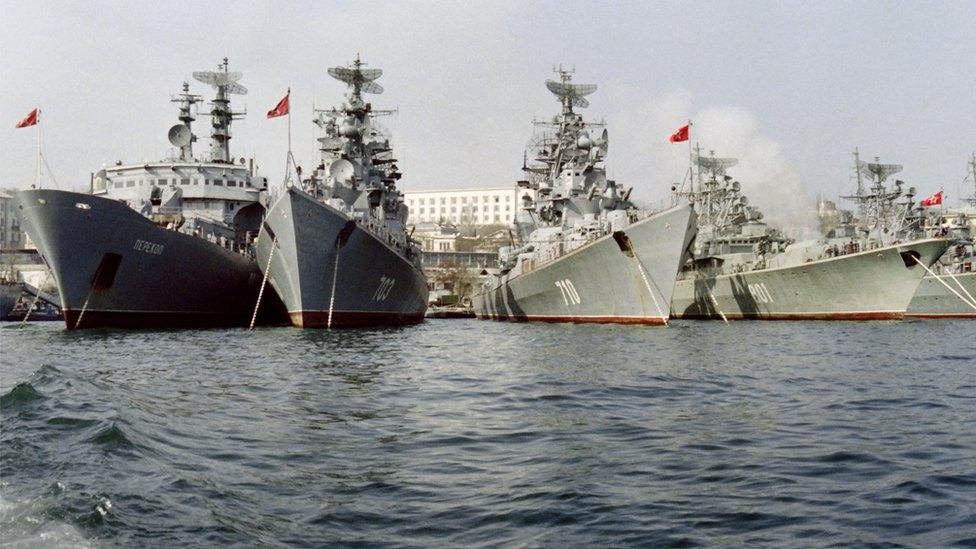
Russian warships in Sevastopol in the early 1990s - a showy facade?
But venture into the base - amazingly nobody could be bothered to stop me wandering around - and you found drums leaking chemicals, rubbish and chaos everywhere, and, as if to symbolise the Soviet collapse, a ship the size of a minesweeper simply sunk at its moorings.
Now Russia is back. It is determined to defend its interests in both the near-abroad - Ukraine - and farther afield in Syria.
Russia is rearming. Its Syrian intervention has become a showcase and proving ground for some of its most modern weapons systems. And its rhetoric has stepped up several notches too with, particularly alarming to the West, rather loose talk about the potential use of nuclear weapons.
Hindsight
So it all looks a little like a new cold war, but is it really one? Nobody should underestimate the depth of the differences between Russia and the West nor the potential danger to which they may lead.
But hindsight is a funny thing. Commentators and politicians alike prefer the familiar. If something can be referenced to a similar situation in the past it appears easier to understand and the policy implications seemingly suggest themselves.
In hindsight, we have a rather benign and unrealistic view of what the real Cold War was about. Its edge has simply gone.
Think back to Winston Churchill's famous speech at Fulton, Missouri in March 1946. In it he coined a phrase that characterised the deep division of Europe. "From Stettin in the Baltic to Trieste in the Adriatic, an iron curtain," he said, "has descended across the continent."
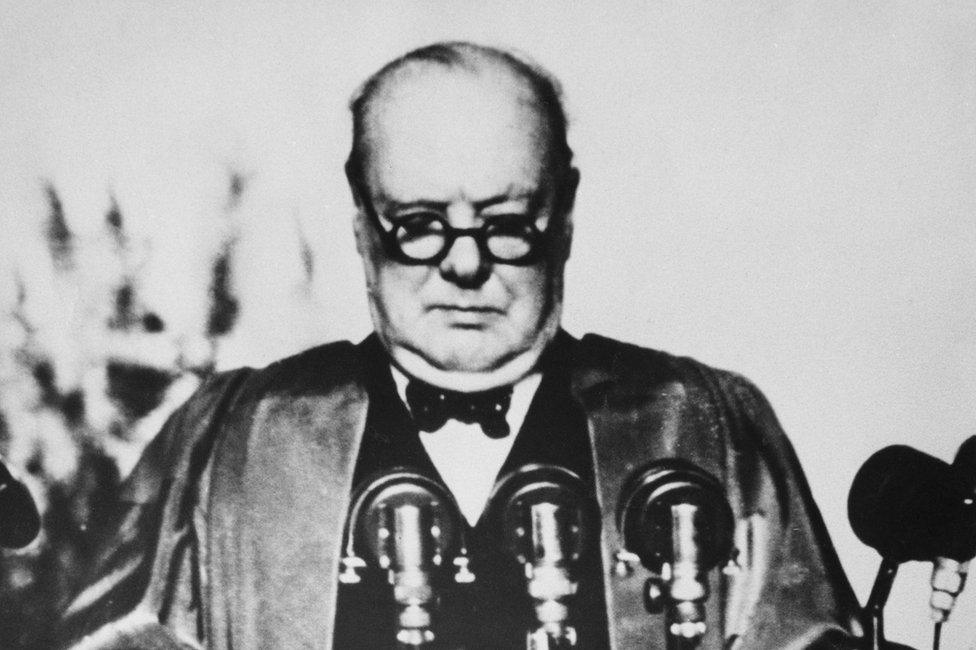
Churchill's "Sinews of Peace" address on 5 March 1946 is best known for his use of the term "iron curtain"
That "iron curtain" and the Soviet Union have both gone. This new "cold war" is not a struggle of two great ideological blocs vying with each other for global dominance. It is largely a weakened Russia seeking to stand its ground and defend its interests, as it sees them, in a hostile world.
Hybrid war?
Where is the threat of world war leading to nuclear annihilation?
Russia, it is said, potentially threatens the Baltic Republics. Nato has got itself in a spin over a supposedly new kind of warfare seemingly practised by the Russians - so-called hybrid war - blurring the boundaries between peace and conflict.
But there are no huge Russian tank armies waiting to roll westwards towards France. There are no Warsaw Pact armies to act as Moscow's allies. And there is probably nothing in the threat that does exist that some prudent reinforcement by Nato (currently under way) cannot forestall.
We forget too that the Soviet Union was ultimately beaten economically. It was a hollow force. It could not sustain the panoply of a global superpower.
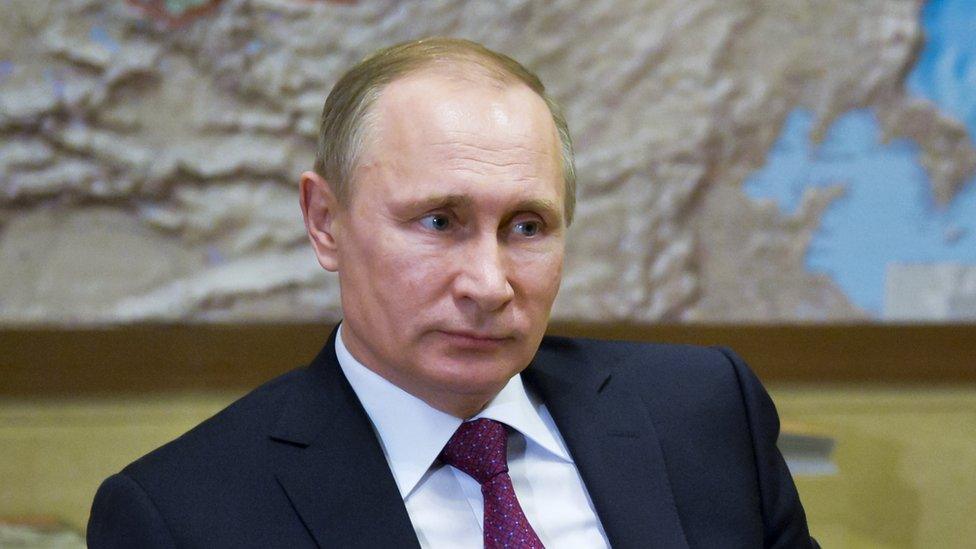
President Putin could overstretch Russia's capabilities - the country is not the superpower of old
Well today's Russia does not even start in the superpower stakes. It is a regional player at best with an economy that is too dependent upon tumbling oil prices. Russia is in many ways a crisis waiting to happen. Indices of public health, mortality and so on are depressingly poor.
No Armageddon
It is true that Russia - through its satellite channels, its funding of curious political forces in the West and so on - seeks to create a counter-culture to the prevailing Western view. In this it has had modest success.
But this is a pale shadow of the propaganda activities of Soviet days, nor are there the legions of the wrong but well-meaning supporters who saw in Soviet communism the salvation of mankind.
That is not to discount current tensions. Certainly Mr Putin could over-reach. It is not impossible to imagine Nato and Russia in some peripheral sense confronting each other, say if Turkey went toe-to-toe with Moscow in Syria.
But for now at least this falls short of the potential Armageddon that was, for a significant part of the Cold War, seen as an all-pervading threat.
If anything this is just a throwback, a reprise of the Cold War in a minor vein. The cast is different. Many have changed sides. The context is different. The geographical scope of the rivalry is much reduced and the relative power of the players has also changed.
It is simply not the Cold War of old, though, one must admit, in some ways it still seems strangely familiar.
- Published13 February 2016
